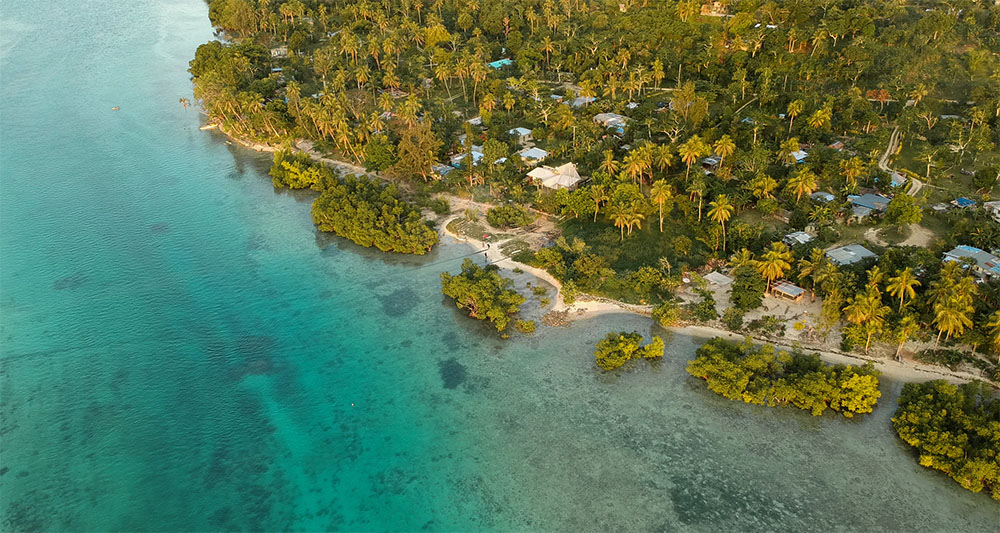
Climate change poses significant threats to the wellbeing and livelihoods of people and the ecosystems in many small island states. Adaptation solutions must counteract these threats while also supporting development in vulnerable communities. Suitable adaptation options need to ensure that connections between the social, economic and environmental dimensions of socio-economic systems are defined in a way that can support how decisions are made (and by whom) and how these can impact other parts of these systems. This is particularly important in many Pacific small island states, where communities practice customary natural resource management and continue to rely on local natural resources.
In this paper, we focus on modelling the anticipated impacts of climate change and the benefits of the ecosystem-based adaptation (EbAEbA Ecosystem-based adaptation - an adaptation approach to climate- and environmental-change which primarily deploys ecosystems and ecosystem functions to mitigate risks from hazards.) approaches on community wellbeing. We demonstrated how each component of a series of coordinated and complementary EbA approaches can improve community wellbeing at multiple scales, including in both a rural village setting and an urban setting, for Vanuatu.
Through describing the nature and the strength of relationships between exogenous drivers and institutions, natural resource stocks and flows, income sources and community facilities, we were able to assess the impact of four factors (Kastomkastom Kastom is a pidgin word (Bislama/English) used to refer to traditional culture, including religion, economics, art and magic in Melanesia. The word derives from the Australian English pronunciation of 'custom'. Kastom is mostly not written, only passed down through teachings and stories and includes places, stories, objects and animals and plants., Health, Education and Wealth) on community wellbeing in a future under two distinct climate change scenarios.
We predicted that all proposed EbA interventions will have a positive impact on the baseline wellbeing in all locations, to some degree, by either directly improving the integrity of Vanuatu’s ecosystems, or by protecting these ecosystems as a positive spill-over of related actions.
Our findings show that the EbA intervention could have multiple impacts through complex social (health and education), ecological, institutional, and economic and financial inter-relationships. For EbA to be successful, it needs to have a positive influence through Kastom, Health, Education and Wealth and needs to recognise that the local scale of implementation is not just a geographical location, but the socio-ecological system.
We also calculated the marginal costs of improvements in wellbeing and conclude that if global temperatures do exceed the 1.5 οC threshold at which coral reefs, in particular, become severely at risk, the costs of maintaining satisfactory levels of community wellbeing increase.

A high-level conceptual diagram of our Bayesian network.
Publication
Sahin, O., Hadwen, W., Buckwell, A., Fleming, C., Ware, D., Smart, J. C. R., Fleming, C., Mackey, B. (2021). Assessing how ecosystem-based adaptations to climate change influence community wellbeing: A Vanuatu case study. Regional Environmental Change, In Press.
About the lead authors:
Dr. Oz Sahin
Systems modeller and Senior Research Fellow in School of Engineering and Built Environment.
Dr. Wade Hadwen
Lecturer – working on social policy and analysis. Expert in climate change adaptation, and WASH issues
Andrew Buckwell
Applied environmental and resource economist and social scientist.
Request a copy of the article
If the download article link below doesn’t work, or leads to a page that requests payment, please click the link to the author profile above and request a copy directly and they will be happy to assist. Not all reviewed journal articles are published as ‘open access’, which are free to download.


